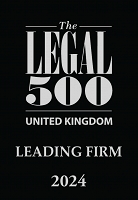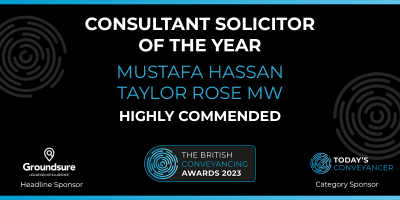DIRECTOR'S DUTIES
DIRECTOR CONFLICTS OF INTEREST
Whether you are a director facing allegations that you are in breach of your duties or you are a co-director needing experienced solicitor advice on how to respond, legally and practically, to actions of a co-director which you believe constitute a conflict of interest, we can help. Please do get in contact.

The Companies Act 2006 outlines the responsibilities of a Director and in specifically relation to conflicts of interest; it outlines the three general duties a Director must observe. These are :-
- To refuse benefits from third parties - the Director must not accept benefits offered from third parties that may have an interest in the company in question, and to ensure that any offered are declared openly.
- To declare interests - a Director has a duty to declare any interests they may have with a third party supplier, arrangement or contract being undertaken by the company, or a transaction they have an interest in.
- To avoid conflicts of interest wherever possible - there is also the duty for a Director to avoid any conflicts of interest wherever possible and should a situation arise where a Director has by some means allowed a conflict of interest to occur in terms of a transaction or contract then unless the shareholders agree they can veto it altogether or, should it have already been processed and then discovered later, the Director has to declare any personal profit received.
What may amount to a conflict of interest can vary from company to company dependent on the individual situation at the time, but generally can be placed into two main categories, conflicts of interest that involve a transaction, and those conflicts of interest that do not.
We ae experienced in advising in potential or actual conflict of interest situations. We advise individual directors and sometimes other directors concerned about the actions of a co-director. Involving us at an early stage can often result in avoiding a potentially much bigger issue or dispute arising which may cause great damage to the company. Please do get in contact to discuss your situation and how we can help.
DIRECTOR CONFLICTS OF INTEREST INVOLVING A TRANSACTION
Surprisingly, a Director is not under a duty to avoid transactions that they may have an interest in, but they must declare the exact nature of the interest to the board where there may be a conflict of interest with the company's interests. A failure to disclose an interest can be considered a breach of duty and can result in the transaction being stopped by the board.
The duty to disclose can be indirect also, such as where a person connected to the Director is involved such as a family member. It is usually safer for the Director to declare any potential connected persons interests also. Voting Directors are able to impose conditions upon any authorisation given to a director to go ahead.
In general, it is best practise that Directors make their board aware as soon as possible in full detail as to any potential conflicts of interest and interests they have in the transaction.
There are two scenarios covered by the Companies Act regarding a Director conflict of interest, as outlined above, a transaction already entered into and a transaction being entered into.
TRANSACTIONS ALREADY ENTERED INTO
If a Director has failed to recognise a potential conflict but then realise, they have a duty to disclose this interest and any profit or benefits to the company. Directors can reasonably be held accountable for matters which they ‘should have had an awareness of.’ Understandably this can be confusing for all involved and so for example if a ‘non acting Director’ found that another company of which they had a minor interest in had entered in to an agreement, it can be argued that they would not have known about the transaction, nor particularly should have known they have not failed in their duty.
TRANSACTIONS BEING ENTERED INTO
To not declare an interest in a transaction that is being entered into is a criminal offence and can be subject to prosecution. A Director has a responsibility to declare any interest or possible conflict of interest, direct or indirect before the transaction has been concluded.
INDIRECT INTERESTS
Another potential conflict of interest to be taken into account is that of a connected person.
Whilst the Companies Act does not strictly outline that a connected person can be accredited as an interest of a Director in a transaction, there can be the assumption of an indirect interest.
The safest course of action for any Director in this situation would be to declare openly that they are connected with a person relevant to the transaction and therefore could be considered to have an interest.
Directors must also declare any benefits that have been offered by a third party and due to section 176 of the Companies Act, have a duty to decline any benefits; unless it can be reasonably deemed that acceptance of these benefits will not give rise to a conflict of interest.
How should the Board of Directors deal with a conflict of interest?
- When considering whether to authorise, each voting Director is required to base their decision on what they feel would benefit the company’s interests most.
- The Director seeking authorisation needs to declare specific information in relation to the potential conflict of interest as fully as possible. In particular, information should include the specific nature of the conflict, and a full disclosure of history relating to the conflict.
- The board voting on authorisation will have the ability to name conditions on which their authorisation is given and should these be violated, then the transaction is voidable.
- Authorisation does not have to contain conditions, but it is often wise that upon authorising a conflict the board ensures that the Director that sought authorisation takes steps to avoid any unnecessarily uncomfortable situations for example meetings regarding the transaction, company or item relating to the conflict.
- Boards should also consider if it would be appropriate to regularly review given authorisation.
- Boards should be aware that their authorisation applies to the conflict in question but does not cover any other failures of duty on the part of the Director in relation to that conflict. Each Director is expected to continue to act in a manner and make decisions based on the best interests of the company, with or without authorisation from the board regarding a conflict.
SHARE THIS GUIDE
TAKE A LOOK AT























